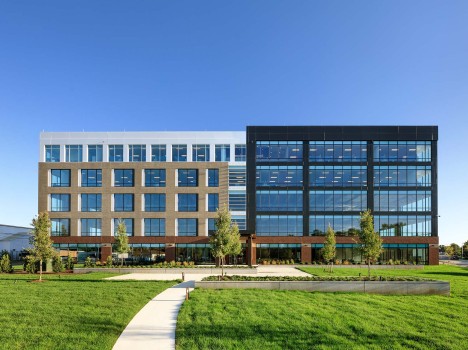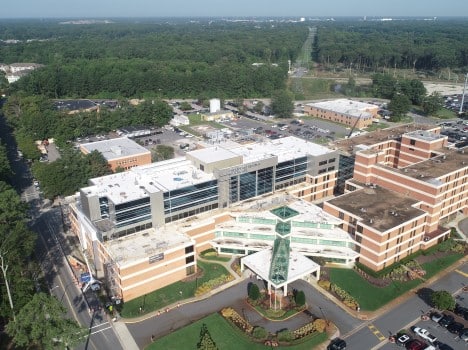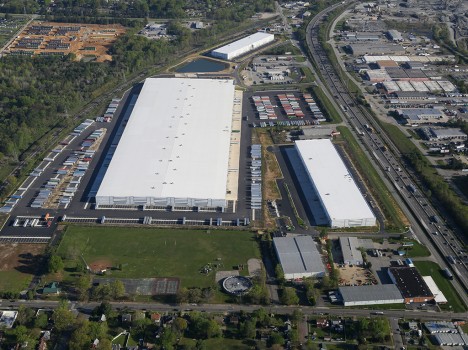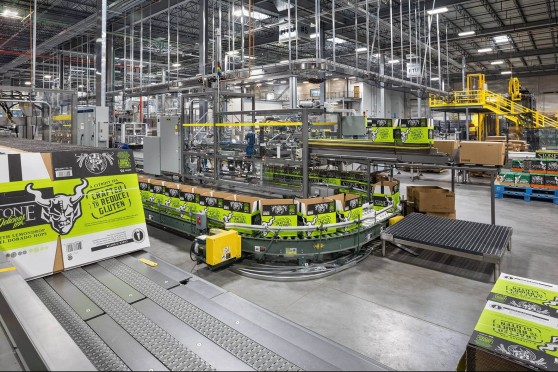
Blog
Richmond, Virginia – Your Next Manufacturing Hub Location
— 4 min read
The Central Virginia region has become a major player in large-scale distribution and manufacturing operations in the Mid-Atlantic. Following the national trend favoring e-commerce over brick-and-mortar stores, demand for updated warehouse space is red hot across the country. With e-commerce expected to rise 9.3% year over year for the next five years, the demand will only continue to increase.
Why Richmond?
Richmond’s central location along the East Coast and I-95 provides for significant distribution and manufacturing efficiencies.
40% of the U.S. population lives within a day’s drive.
55% of the U.S. population lives within a 750-mile radius of the city.
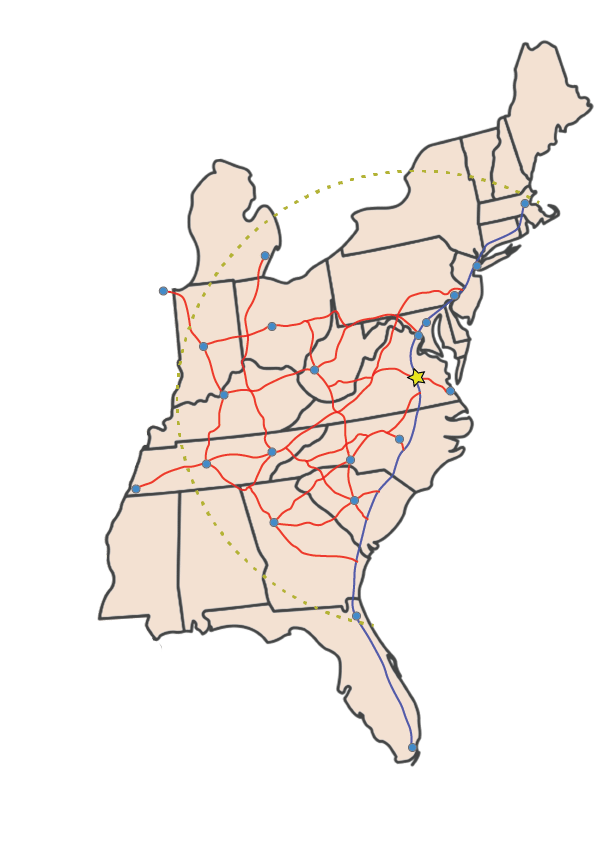
East Coast map highlighting I-95 in blue passing through Richmond indicated by the yellow star.
As the 44th largest metro area in the U.S., the Richmond Metropolitan Statistical Area (MSA) is considered a mid-sized city. There are several business benefits related to residing in a mid-sized market compared to larger markets such as Atlanta, New York, or Washington, D.C. The cost of living in the greater Richmond area is nearly 5% below the national average, although Richmond is consistently ranked above-average in national quality of life polls and rankings.
Multi-Modal Transportation
With the recent explosion in e-commerce home delivery, previous logistics and supply chain strategies are inadequate to handle the process of manufacturing to last-mile delivery. Multiple transportation options are key to ensuring efficient and, often, more sustainable transportation modes.
- Roadway: Four major interstate highways run in close proximity to Richmond, including I-95, I-64, I-85, and I-295 with quick connections to I-81 to access the West.
- Rail: Two of the nation’s largest railroads, CSX and Norfolk Southern, provide rail service to the region.
- Air: Richmond International Airport (RIC) is home to eight airline carriers with non-stop flights to over 20 U.S. destinations. 100 miles to the north of Richmond, Washington Dulles International Airport (IAD) offers 50 non-stop international flights. Ronald Reagan Washington National Airport (DCA) offers 99 non-stop domestic flights and five international flights.
- Marine: The Richmond Marine Terminal (RMT) has been integral to Richmond’s growth as a logistics hub. The James River Barge Service, offering container-on-barge service from Hampton Roads to the RMT, provides a maritime connection between Richmond and Norfolk’s, Port of Virginia, one of the largest and deepest shipping ports in the United States.
Market Oriented
Virginia has garnered numerous accolades as one of the top states to do business by Forbes, CNBC, The Wall Street Journal, and Thumbtack.
There are a variety of federal, state and local incentives for business relocation or expansion to Richmond. Some of Richmond’s industrial sites are located in newly created “Opportunity Zones” that allow for certain federal tax benefits for qualified building and equipment investments. There are also state and local incentives that target state-defined “Enterprise Zones.” In some instances, a site may sit within both an “Opportunity Zone” and “Enterprise Zone” and would qualify for both types of incentives. A prime example would be Stone Brewing Distribution Center— a 224,000-SF brewing and distribution facility that acts as the east coast hub for California-based Stone Brewing. The building provides for all aspects of the brewing process including production, packaging, storage, and distribution. It also includes offices and a retail/beer garden area. The elevated tank farm structure supports forty fermentation tanks to allow for the planned production of over 600,000 barrels of beer per year. Additionally, Stone has ample access to public transportation for personnel, goods, and products.
 Stone Brewing Manufacturing Distribution Center, Richmond, VA
Stone Brewing Manufacturing Distribution Center, Richmond, VA
Calling Richmond Home
Diversity is key to long-term economic stability in a region. Rather than being dependent on a single industry, Richmond is home to a diverse number of Fortune 1000 companies that span the full spectrum of industries and services. With undergraduate and graduate programs in industrial and logistics technology, supply chain management, and transportation planning; the concentration of the U.S. Army’s logistics training at Fort Lee; and a range of businesses focused on innovating new systems and technologies, Richmond has the resources to lead the surge in supply chain analytics, technology, and process development.
